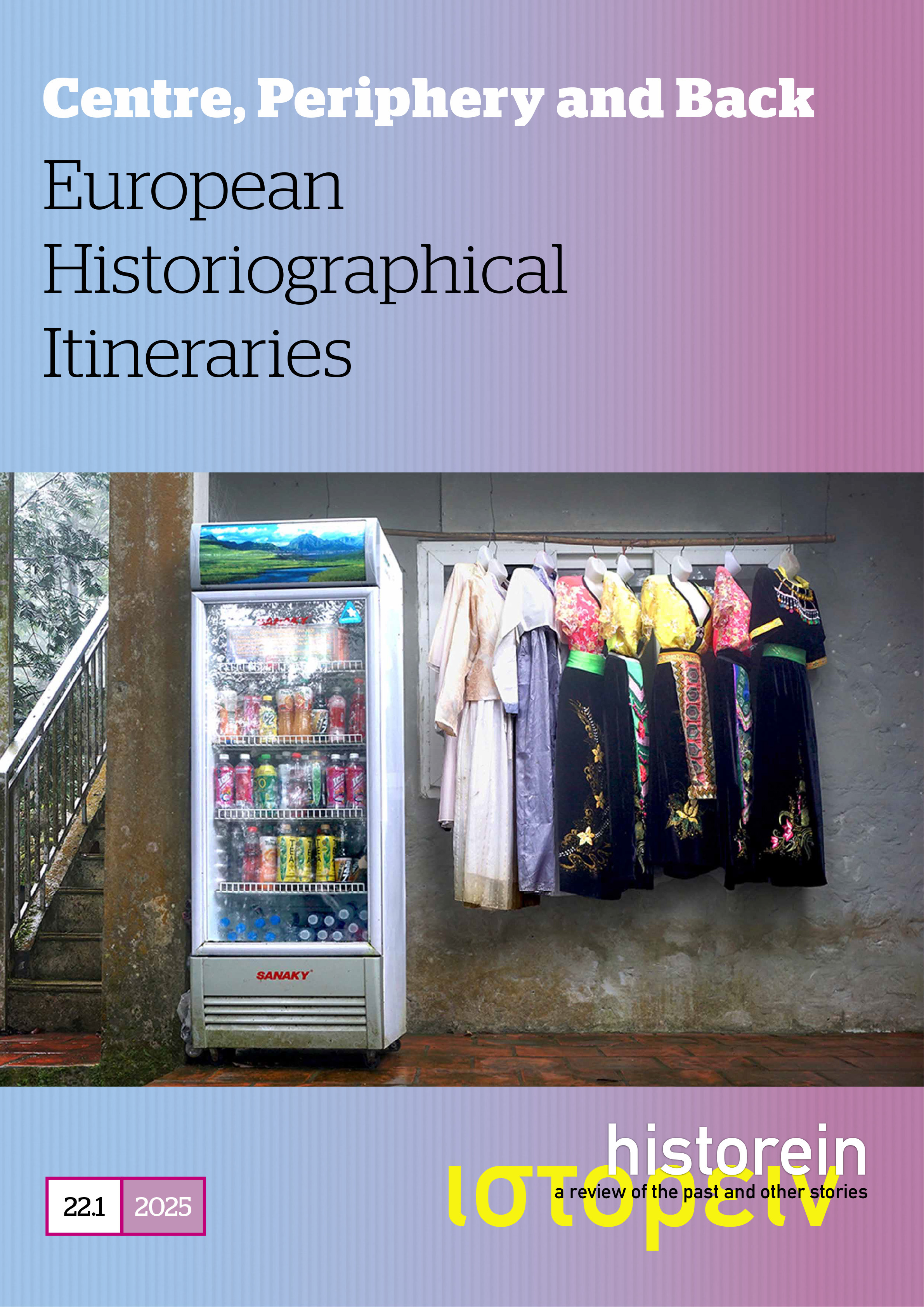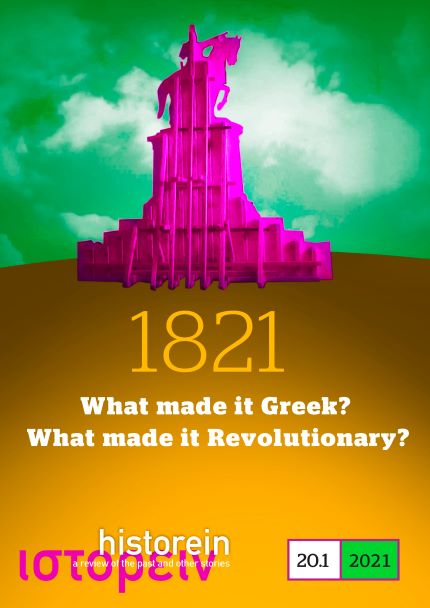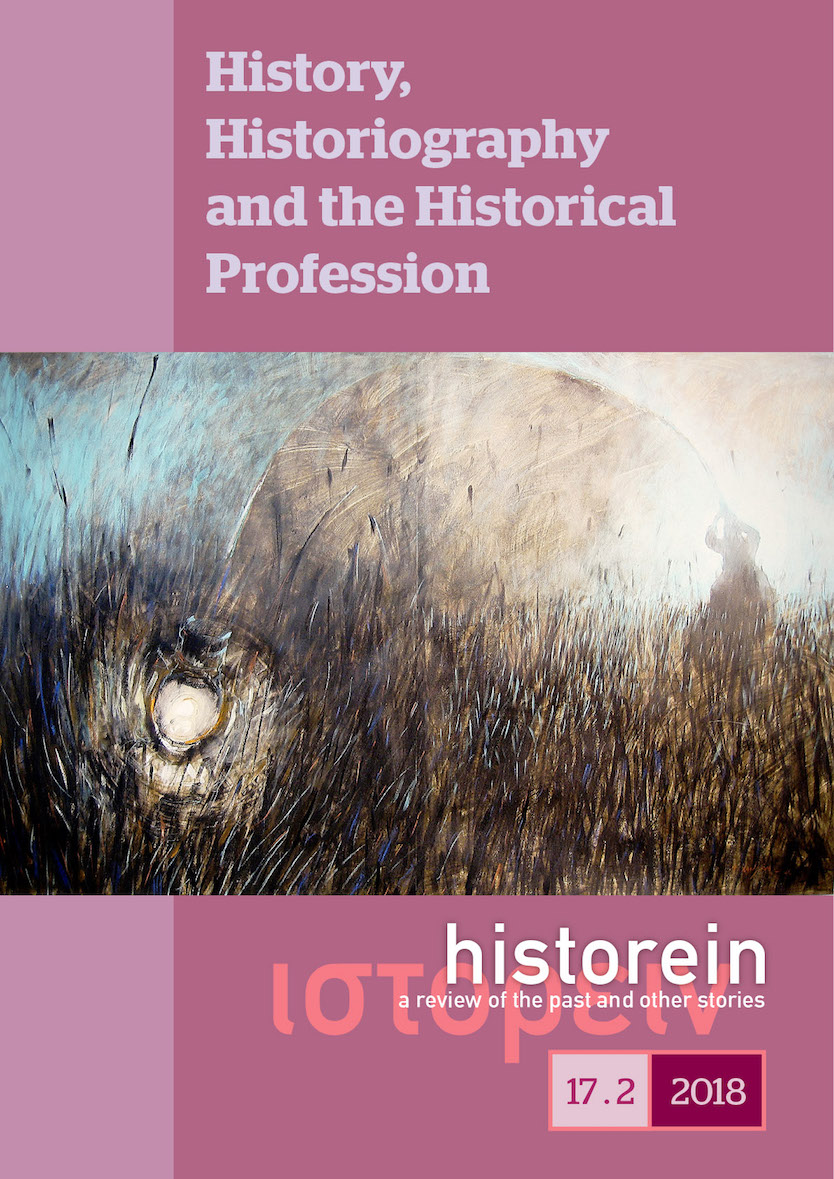Afterword. Decentring and Renarrating Europe (One More Time) Echoes of War (One More Time)

Abstract
This Afterword examines how the Russo-Ukrainian War and shifting geopolitics have reshaped historiography, particularly regarding Europe’s evolving borders, centres and peripheries. The war accelerated calls to decolonise Slavic, Russian and European studies, emphasising the agency of Ukraine. Ultimately, the war has reinvigorated debates about Europe’s identity, reminding scholars that Europe is not monolithic but a mosaic of shifting, intersecting regional, global and contested stories.
Article Details
- How to Cite
-
Dialla, A. A. (2025). Afterword. Decentring and Renarrating Europe (One More Time): Echoes of War (One More Time) . Historein, 22(1). https://doi.org/10.12681/historein.41286
- Section
- ARTICLES

This work is licensed under a Creative Commons Attribution-NonCommercial-ShareAlike 4.0 International License.
The copyright for articles in this journal is retained by the author(s), with first publication rights granted to the journal. By virtue of their appearance in this open access journal, articles are free to use (with the exception of the non-granted right to make derivative works) with proper attribution for non-commercial uses (licence Creative Commons 4.0). EKT/NHRF retains the worldwide right to reproduce, display, distribute, and use articles published in Historein in all formats and media, either separately or as part of collective works for the full term of copyright. This includes but is not limited to the right to publish articles in an issue of the Journal, copy and distribute individual reprints of the articles, authorize reproduction of articles in their entirety in another EKT/NHRF publication, and authorize reproduction and distribution of articles or abstracts thereof by means of computerized retrieval systems.




